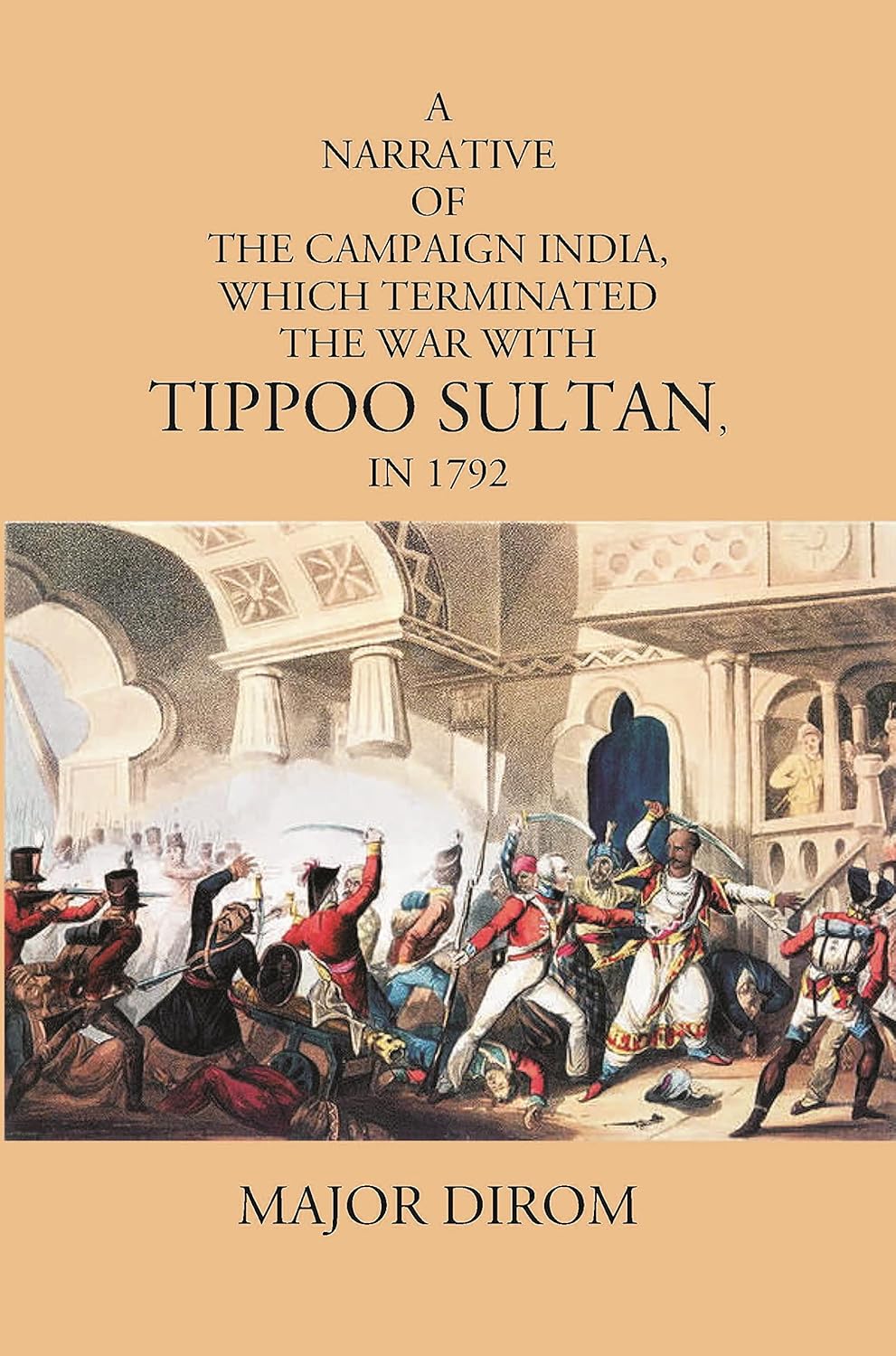A Narrative Of The Campaign India, Which Terminated The War With Tippoo Sultan, In 1792 - HARDCOVER
A Narrative Of The Campaign India, Which Terminated The War With Tippoo Sultan, In 1792 - HARDCOVER
Couldn't load pickup availability
About the Book:-The prospect of leisure for several months, during the voyage from India, suggested to the narrator of this narrative the idea of drawing up an account of the last campaign with Tippoo Sultan, from journals and other authentic documents, while the events were recent in his memory. The author has delved deep into the 18th century to explore new avenues what it was like to live during this period by reading the first-hand accounts of everyday people, including city dwellers and farmers, businessmen and bankers, artisans and merchants, artists and their patrons, politicians and their constituents. Original texts make the American, French, and Industrial revolutions vividly contemporary. The below data was compiled from various identification fields in the bibliographic record of this title. This data is provided as an additional tool in helping to insure edition identification. Now for the first time these high-quality digital copies of original 18th century manuscripts are available in print, making them highly accessible to libraries, undergraduate students, and independent scholars. It also decorates with maps and plans illustrative of the subject, and a view of Seringapatam. About the Author:-Lieutenant General Alexander Dirom of Luce and Mount Annan FRS FRSE was a British military commander who saw overseas service in Barbados, Jamaica and India. He is remembered not only as a military commander but also as an agricultural improver, which earned him Fellowship of both the Royal Society of London and the Royal Society of Edinburgh. His most notable contribution was to identify the importance of salt in animal diets, leading to the widespread use of ‘salt-licks’ from around 1800. His views on the British corn trade also paved the way to the formulation of the Corn Laws in the early 19th century.
Share

